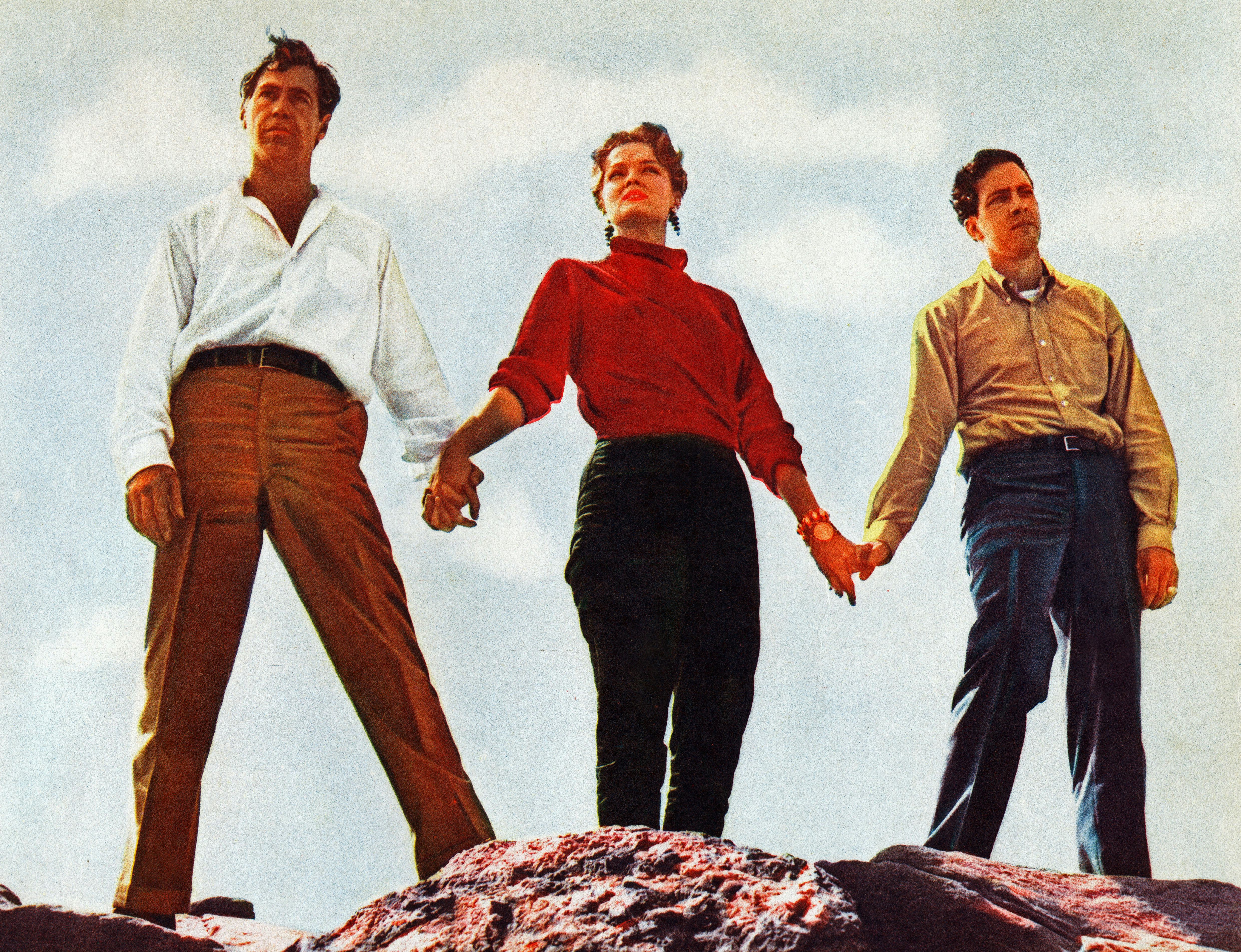
Widely regarded as one of the greatest screenwriters to emerge from the New Hollywood scene, Robert Towne picked up an Academy Award for Chinatown, penned and directed cult favorite Personal Best, and worked with Tom Cruise on Days of Thunder, The Firm, and not just one, but two Mission Impossibles. However, his first credit, 1960’s Last Woman on Earth, didn’t exactly suggest greatness ahead.
To be fair, Towne had barely any time to pen its three-hander screenplay, with the whole film very much an afterthought designed to literally cash in on a new Puerto Rican law. Filmmaker Roger Corman, who’d mentored him since they met at an acting class, had traveled to the Caribbean island following the launch of Operation Bootstrap, a tax-exempting initiative which Governor Luis Muñoz Marín hoped would boost the nation’s economy.
And in-between producing Battle of Blood Island and helming horror comedy Creature from the Haunted Sea, the maverick decided to squeeze in a feature that would combine the post-apocalyptic with the psychosexual. Shot in less than two weeks on a minuscule budget, Last Woman on Earth subsequently arrived in cinemas just in time for a double feature with The Little Shop of Horrors. Yet while the latter killer plant movie only grew in stature, the former quickly wilted away.
It’s not hard to see why Towne’s first project failed to serve as a calling card, although admittedly it does boast an intriguing set-up and in the introductory cockfight scene, a clever bit of foreshadowing. It’s during this Puerto Rican tradition we meet the trio who carry the following 71 minutes entirely on their shoulders. Harold Gern (Antony Carbone) is a wealthy New York entrepreneur, and apparently a deeply shady one considering he spends just as much time in the courthouse as the boardroom. This is a man who takes his wife Evelyn (Betsy Jones-Moreland) on a romantic getaway with his lawyer Martin in tow. Under the pseudonym of Edward Wain, Towne also makes a rare acting appearance playing the latter, his impromptu casting another way of bringing the costs down.
The fact Evelyn brazenly flirts with Martin during a hotel room encounter suggests she’s on board with this unorthodox dynamic. The trio even happily go scuba diving together in a development which will ultimately save their lives. For while they’re busy swimming underwater, the rest of mankind is struck down by a catastrophe which results in instant demise. When they resurface, they’re the last three humans alive.
Unable to breathe without their masks on, Earth’s last great hope realize the world must have run out of oxygen. Luckily, on steering their boat to the nearest jungle, they’re able to take advantage of the photosynthesis process. And even luckier, for reasons which also remain officially unexplained, normal respiratory service is then resumed.

Of course, the three only realize the scale of the situation when they head back into San Juan’s town center and find the streets are both eerily quiet and scattered with dead bodies. Proving Towne hadn’t quite mastered the art of emotion yet, this news is treated with an almost comical nonchalance rather than the abject horror you’d expect.
In fact, the couple and their tag-along gooseberry often treat the scenario as one big jolly: they frolic in the sea and quip about getting a table at the nearest French eatery while glammed up to the nines. Eventually, though, they start to understand the ramifications of their predicament and begin questioning their futures. “All that’s left for us is to love with our pain,” Martin later sighs like an emo teen.
Unfortunately, Towne’s script veers away from this far more interesting existential survival drama and toward a love triangle which, even in the early 1960s, sets women’s liberties back a good few decades. In fact, Martin and Harold spend the film’s second half butting heads over who gets to bed Evelyn, the latter explicitly claiming full ownership with an uneasy bedroom scene where he repeatedly states “You’re my wife.”

While its title hinted at a feminist spin on the end-of-the-world movie, Evelyn remains a disappointingly passive figure throughout. “I’ve so little to say and nobody who’ll listen,” comes her own on-the-nose admission. She is finally allowed to display a sense of agency during a finale which seems positively Fast and Furious-esque compared to the talky minimalism gone before. But even that’s soon undermined by a baffling reaction which puts her straight back under the thumb of Harold’s alpha male.
Indeed, it’s Evelyn who appears to instigate an extra-marital encounter with Martin. And following an unintentionally comical fish fight in which the two dunderheads exchange playground insults (“the way you catch fish stinks, and furthermore Harold, you stink”) while slapping each other with their catch, she decides to ditch her husband and run away with her only other option.
However, unwilling to admit defeat, Harold follows in hot pursuit, causing a dazed Martin, still suffering the effects from his previous scuffle, to crash their car. Another pathetic fight ensues, as does a dramatic chase to a church where Martin eventually succumbs to his injuries. “I killed him,” the last man on Earth confesses, his subsequent cry of “Will we never learn?” adding shameless hypocrisy to his list of crimes and misdemeanors.
Despite the fact he’s just fatally beaten her new lover, a remarkably fickle Evelyn then agrees to join Harold for a new life, albeit one still presumably entrenched in toxic masculinity. It’s a bleak denouement which bears all the hallmarks of a rushed first draft, although the fact Towne conjured up anything under such constraints is impressive. Thankfully, his wordsmithery would soon get the chance to shine with auteurs who preferred things a little more civilized.







